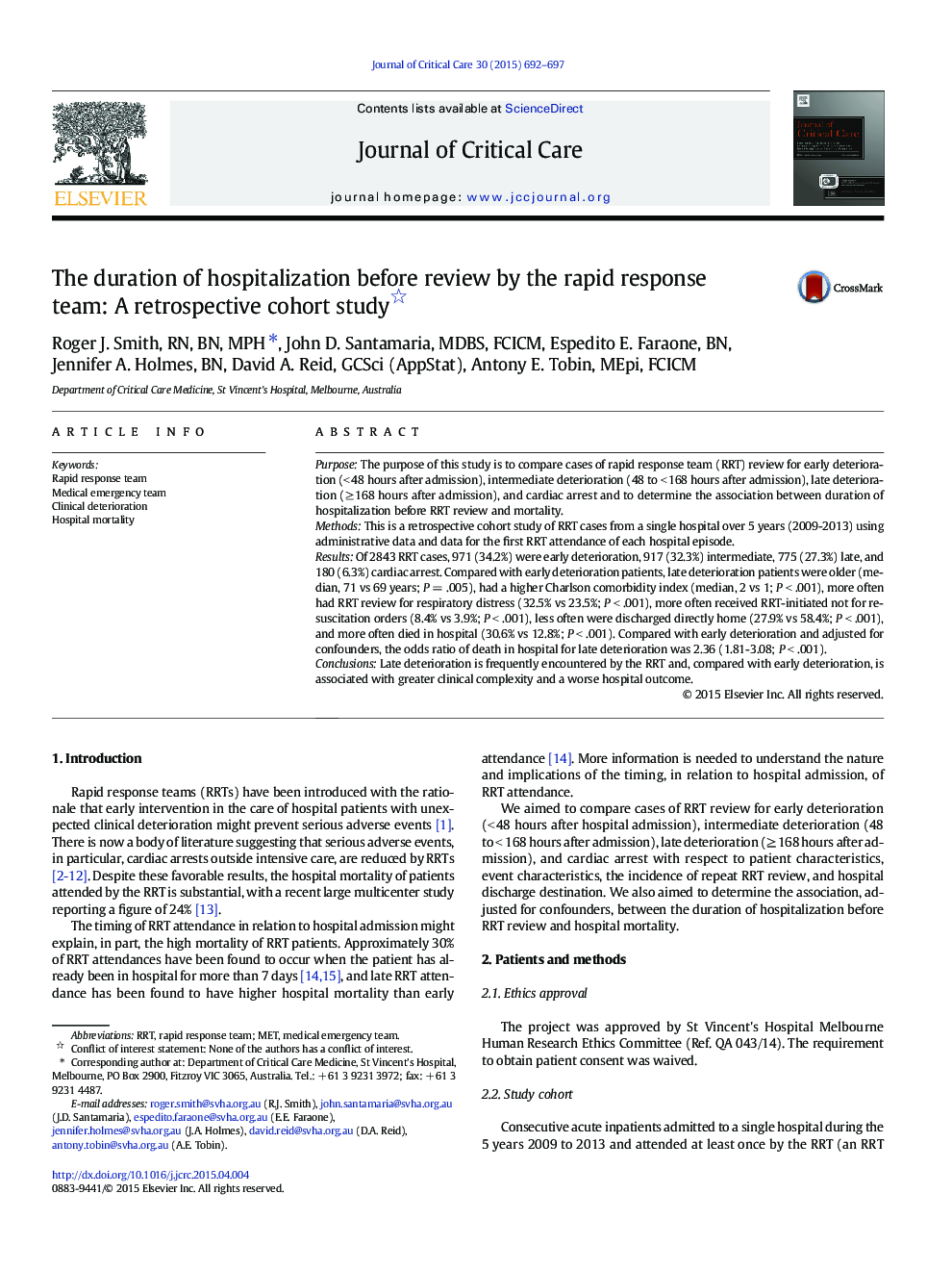| Article ID | Journal | Published Year | Pages | File Type |
|---|---|---|---|---|
| 2764517 | Journal of Critical Care | 2015 | 6 Pages |
PurposeThe purpose of this study is to compare cases of rapid response team (RRT) review for early deterioration (< 48 hours after admission), intermediate deterioration (48 to < 168 hours after admission), late deterioration (≥ 168 hours after admission), and cardiac arrest and to determine the association between duration of hospitalization before RRT review and mortality.MethodsThis is a retrospective cohort study of RRT cases from a single hospital over 5 years (2009-2013) using administrative data and data for the first RRT attendance of each hospital episode.ResultsOf 2843 RRT cases, 971 (34.2%) were early deterioration, 917 (32.3%) intermediate, 775 (27.3%) late, and 180 (6.3%) cardiac arrest. Compared with early deterioration patients, late deterioration patients were older (median, 71 vs 69 years; P = .005), had a higher Charlson comorbidity index (median, 2 vs 1; P < .001), more often had RRT review for respiratory distress (32.5% vs 23.5%; P < .001), more often received RRT-initiated not for resuscitation orders (8.4% vs 3.9%; P < .001), less often were discharged directly home (27.9% vs 58.4%; P < .001), and more often died in hospital (30.6% vs 12.8%; P < .001). Compared with early deterioration and adjusted for confounders, the odds ratio of death in hospital for late deterioration was 2.36 (1.81-3.08; P < .001).ConclusionsLate deterioration is frequently encountered by the RRT and, compared with early deterioration, is associated with greater clinical complexity and a worse hospital outcome.
